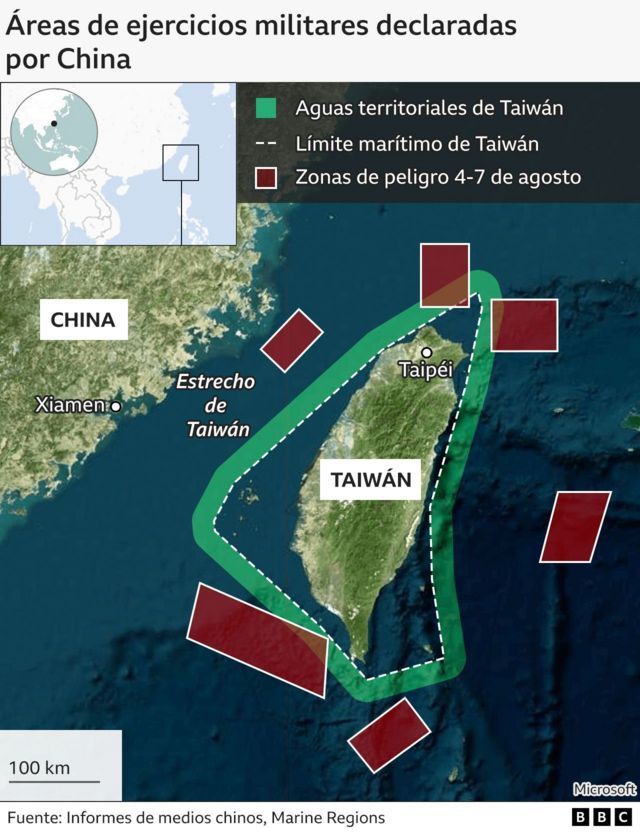Amidst rising global tensions, the escalating trade war between China and the United States has captured the attention of financial markets and geopolitical analysts worldwide. The ongoing conflict is not merely a battle over tariffs and trade deficits; it represents a broader struggle for economic dominance and strategic influence. As both nations implement measures that impact global supply chains and international relations, understanding the implications of these actions becomes crucial for assessing future market stability.
The interplay between economic policies and military strategies adds another layer of complexity to this unfolding drama. With each side making moves that affect not only their domestic economies but also the global landscape, the world watches closely as these superpowers navigate through uncharted waters. This article delves into the latest developments in the U.S.-China trade war, examining how recent actions might shape global markets and influence international stability.
As the trade war intensifies, Hong Kong's economy and its businesses are grappling with new challenges and rising costs. The situation has become increasingly complex, with growing economic, military, and philosophical tensions adding to the uncertainty. While the immediate focus is on the economic impacts, there are underlying concerns about the broader implications for global stability. Analysts suggest that the current phase of the trade war could lead to significant shifts in alliances as countries are pressured to choose sides, potentially reshaping the global order.
Global Markets React to Escalating Trade Tensions
The deepening trade war between the United States and China has sent shockwaves through global markets, prompting investors to reassess risk levels and adjust their portfolios accordingly. Stock markets worldwide have experienced volatility as traders react to news of additional tariffs and export bans. In particular, industries reliant on rare earth elements and critical minerals face heightened uncertainty due to China's recent decision to restrict exports of these vital materials. These actions underscore the interconnectedness of global supply chains and highlight vulnerabilities that could lead to long-term disruptions if unresolved.
Furthermore, the psychological impact of escalating trade tensions cannot be overlooked. Businesses operating across borders must now contend with increased operational costs and potential supply chain disruptions, which may deter investment and hinder growth prospects. For multinational corporations, navigating this challenging environment requires strategic planning and contingency measures to mitigate risks associated with shifting trade policies. As governments continue to engage in tit-for-tat retaliations, maintaining confidence in international trade remains precarious at best.
In response to these developments, central banks around the world are monitoring the situation closely, prepared to intervene should conditions warrant such action. Policymakers recognize the importance of preserving financial stability amidst heightened uncertainty caused by ongoing trade disputes. By fostering dialogue and encouraging diplomatic solutions, stakeholders hope to prevent further escalation while promoting sustainable economic recovery for all parties involved.
Navigating Economic Uncertainty Amid Military Posturing
Beyond economic considerations, the trade war has taken on a distinctly militaristic tone, raising concerns about regional security and global peace. China's decision to impose export restrictions on critical minerals used in defense systems signals an assertive stance aimed at leveraging its position within global supply chains. Such moves serve as reminders of the intricate relationship between economic policy and national security, where access to essential resources can determine military capabilities and strategic advantages.
Meanwhile, the United States continues to strengthen alliances with like-minded partners in Asia-Pacific and beyond, reinforcing collective efforts to counterbalance Chinese influence. Through joint military exercises and enhanced cooperation agreements, Washington seeks to demonstrate solidarity among allies while deterring aggressive behavior from Beijing. However, these initiatives also carry risks of provoking unintended consequences if misinterpreted or mishandled during tense negotiations.
As tensions mount, balancing economic interests against security concerns becomes ever more challenging for policymakers on both sides. Finding common ground will require creative diplomacy and mutual respect for sovereignty, lest the cycle of retaliation perpetuates itself indefinitely. Ultimately, achieving lasting resolution depends upon fostering trust and transparency between rival powers, ensuring that shared prosperity prevails over competitive rivalry.
Reassessing Alliances in a Fragmented World Order
With the U.S.-China trade war showing no signs of abating, nations worldwide find themselves compelled to reevaluate existing relationships and explore alternative partnerships better suited to evolving circumstances. This realignment process reflects broader changes occurring within the international system, driven partly by technological advancements and shifting power dynamics. Countries seeking to maintain relevance must adapt quickly to changing realities while safeguarding core values and interests.
For many developing nations, aligning too closely with either superpower poses inherent risks, including loss of autonomy and exposure to economic coercion. Consequently, some states opt instead for hedging strategies that allow them to benefit from engagement with multiple actors without fully committing to one side exclusively. This approach enables greater flexibility when responding to unpredictable developments arising from prolonged trade conflicts.
Looking ahead, success in managing this delicate balancing act hinges largely upon effective multilateralism and inclusive governance structures capable of addressing shared challenges collaboratively. By prioritizing collaboration over confrontation, global leaders can work together towards creating a more equitable and resilient framework for future interactions, ultimately contributing to greater stability and prosperity for all participants involved.

